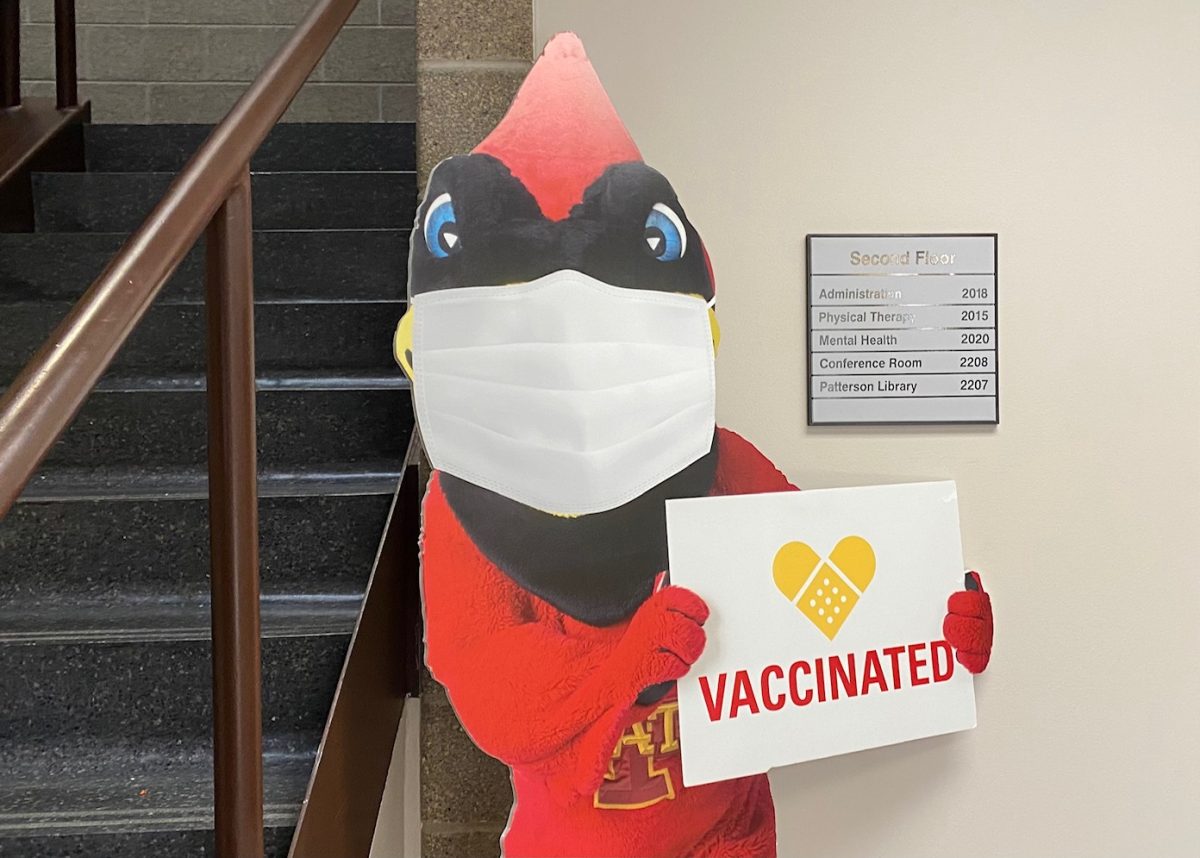Iowa State students raised on farms combine classes with helping out at home
October 26, 1999
When Adam Thompson, 19, sophomore in agricultural business, first began helping his family with the fall harvest in Kanawha, he wasn’t even strong enough to start the tractor, an International 1086.
“You had to hold the clutch in to turn the key,” Thompson said. He explained that the clutch was very hard to push in and that his mother also had trouble starting the tractor.
And for someone who found himself driving a tractor at 9 years of age, starting a big piece of machinery wasn’t his only worry.
“It’s kind of like the first time you get the keys to the family car,” Thompson said.
But worry never kept Thompson from helping out on his family’s century farm, even after he became a student at Iowa State. For more than 100 years, his family has made the farm survive despite numerous hardships.
“We haven’t made every business decision right,” Thompson said, “but we just tried to do as much as we could through each generation and pass down the land and knowledge as efficiently as possible.”
Thompson isn’t alone: Many ISU students are faced with the challenge of balancing the roles of student and farmer.
John Palmer, 19, freshman in pre-business, spent much of his time at home this fall to help get the crops in, despite the pressures of classwork.
“I’ve gone home the past three weekends to help,” he said.
“I go home mostly because I enjoy it.”
Palmer said he gained valuable life skills from farming, which has prepared him for balancing college with the time he spends harvesting.
“I’ve learned a great deal of common sense and responsibility, as well as getting hands-on experience in a lot of different fields,” he said.
Thompson said being both a student and fifth-generation farmer is challenging.
Home in Kanawha is an hour and a half away; college presents many worries and responsibilities, and to him, farming as a family has become a dying phenomenon, since it’s hard to make a profit.
However, Thompson said growing up on the farm was a valuable experience that taught him to effectively manage his time and make good decisions.
“During the harvest, farming comes first in my life … over school,” he said. “Midterm hits right in the center of harvest, which kind of hurts, but it makes it easier to be efficient and get things done.
“When you get up in the morning, you know you’re not going to have free time, so you just do what you have to,” he said.
Unlike Thompson, who grew up on a central Iowa farm where a corn-soybean rotation predominated on 1,200 acres, Palmer makes a more than three-hour trip to the family dairy farm near Waukon, located in the rolling hills of northeast Iowa.
On the Palmer farm, which spans 320 acres, there aren’t any soybeans. Instead, corn, hay and oats are grown to feed the more than 90 dairy cows his family raises.
“Some of my first memories of harvest were of riding along in the cab of the combine with my dad,” Palmer said.
He said by the time he was 3 years old, all of his time was spent helping his dad on the farm.
Farming has become such a part of Palmer’s life that he said he will head back to the farm after earning his degree.
“My brother and I are planning on taking over,” he said. “For basically my whole life, I always figured I’d return to farming.”
There are often moments when Palmer said he finds himself thinking of home and the work he loves.
“Sometimes, I wish I was at home … farming,” he said. “Sometimes, I just miss the simplicity of it, and I just feel like that’s what I’ve grown up with. That’s where I belong.”
Time spent working on the farm often served a dual purpose for Palmer.
While helping his family to earn a living, he said it also helped him sort out various problems he has faced.
For Thompson, returning to the farm isn’t a life goal or something that he feels is a sure thing.
The future of farming, he said, is too uncertain for that sort of commitment.
Thompson said it’s not that he wouldn’t like to return, but surviving as a farmer in the 21st century seems questionable.
“I don’t feel I know enough about the future to make a decision,” Thompson said, “but my dad says I’m welcome back.”
Eric Vobr, 22, sophomore in agronomy, said he hopes to return to the farm someday, but he also sees the uncertainty of farming as something that keeps him from making a definite decision.
However, Vobr said missing the harvest would be hard.
“I always like to go home and help,” he said. “I couldn’t stand not going home. It brings me back to my roots.”
On the Vobr farm near Cresco, the family raises black-white face beef cattle, corn, hay and soybeans.
Vobr said he felt that growing up on the farm has given him a sense of pride.
“I learned hard work, ethics and how to find ways to make ends meet,” he said. “And you always see what you’ve accomplished.”
Palmer said a major reason why he would want to return to farming is because he likes being his own boss.
“I’m not going to bow down to somebody,” he said. “I’ve always been able to make my own decisions about how I was going to do the job. … Especially in the last few years, I’ve enjoyed taking a lot larger management role.”
If it becomes too difficult to make a living in farming, Palmer said his degree will give him the ability to get a different job, while at the same time complementing his first-choice profession.
However, Palmer maintains that farming is the life for him, despite the pressures.
“There’s not enough people who end up back at the farm,” he said.
“I think the odds are beatable. I don’t feel defeated before I start because there’s always challenges to everything.”
And as they make their weekend treks back to the farm, each student said he looks forward to helping with the harvest.
“My roots always end up back at the farm,” Palmer said. “I’m glad that I want to go home.”






